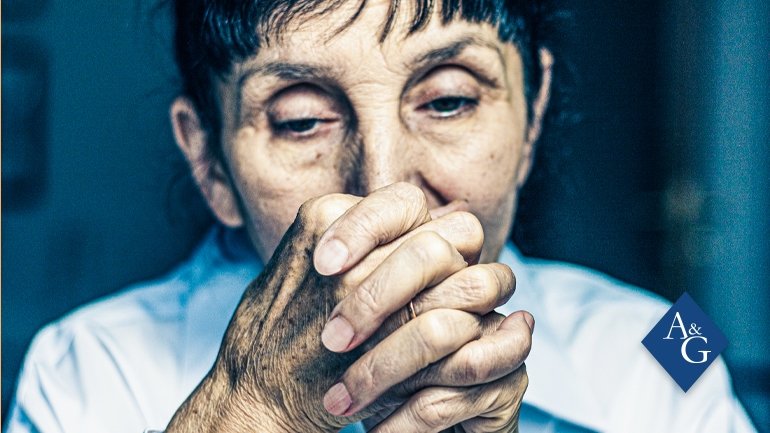If you’ve been denied you claim for Social Security Disability Insurance (SSDI) or Supplemental Security Income (SSI) for your depression, you may feel like giving up. Living with depression or other mental health issues can be debilitating and frustrating enough without the worry and hardship of benefits denial.
Now that you’ve been denied, what can you do to appeal?
Where do you start?
How do you ask for help, and from whom?
Will an appeal be expensive?
For those with mental health issues such as Anxiety, Depression, or PTSD, seeking SSDI or SSI can sometimes feel like an uphill battle. You don’t have to do this by yourself. At Affleck and Gordon, our team of compassionate attorneys is experienced and well-versed in Social Security claims, denials, and appeals. Because we specialize in Social Security, we have extensive experience winning benefits for those with depressive symptoms that impact their ability to work. We’re your empathetic partner to help you through a difficult time in life.
And, we only get paid if you win your case.
You may be a candidate to receive SSDI or SSI for mental health conditions, but only if your case is presented with the right evidence. The right attorney can help you properly prepare your case so that you have the best chance of receiving benefits.
What Does Social Security Cover?
Fortunately, the Social Security Administration (SSA) provides benefits through SSDI and SSI for those with mental disorders, including clinical depression, however, you must meet very specific criteria to meet the SSA’s guidelines. If you’ve been denied, the appeals process must present new, relevant information that was not included in your original claim. This can include having an attorney to point out factors from your original evidence that the SSA did not consider. That’s where the right legal partner can help. At Affleck and Gordon, we know the specifics that the Social Security Administration is looking for in either approving or denying a Social Security claim for depression, and we can help you amass the right documentation for your appeal.
How Do I Qualify for Benefits for my Depression?
There are two ways to qualify for SSI and SSDI, whether your disability is physical or mental. When applying for SSDI and SSI benefits, both your physical and mental health issues will be considered by the SSA in deciding your ability to work.
The First Option:
The first option is to meet an SSA listing for mental health. This is the most difficult path to approval when seeking disability for depression, as your symptoms must fit into rigid categories. Only a very small percentage of claimants meet the listing requirements.
The Second Option:
The second choice has a more likely path to approval. If you have medical records that document your conditions, this is only half the battle. You must further show how your medical condition and symptoms affect your ability to function on a day-to-day basis. Documenting the connection between conditions and functioning is critical in any disability claim. At Affleck and Gordon, we walk alongside our clients on their path to benefits. With your partnership, we can help determine the best route for you.
When you experience these symptoms in a way that clearly impacts your ability to work, we want to fight for the hard-earned benefits that you have paid into the system.
Why Should I Work with an Attorney for my Appeal?
When seeking SSDI or SSI for depression, a skilled and experienced attorney can argue to the SSA the specific reasons why your conditions make you disabled. When facing a hearing for your appeal, it’s imperative that you have the right legal representation to assist you.
A client who’s been treated for depression may have documents spanning years, and thousands of pages. An experienced disability attorney can distill the information down to the most relevant components of your claim to help you present the strongest claim possible.
Once you make an appointment to meet with us, we can gather all relevant information for your appeal. You can rest assured that we will be working for you and for your claim.
What Evidence Should I Bring When I Meet My SSDI/SSI Attorney?
When filing an appeal for SSI or SSDI, the Social Security Administration looks for specific documents and evidence of your disability that may not have been presented in your original claim. The SSA considers all relevant medical evidence about your disorder from your physician, psychologist, and other medical sources, which include health care providers such as physician assistants, psychiatric nurse practitioners, licensed clinical social workers, and clinical mental health counselors.
Navigating a denial of your Social Security claim for depression and seeking an SSI attorney to assist with your claim doesn’t have to be overwhelming. We understand what you’re going through, as we’ve assisted many others win disability for mental health disorders. We can help you, too. We can evaluate your claim, help organize the most important facts of your medical history, and help you present a strong, compelling claim. At Affleck and Gordon, we’re the experienced Social Security law firm you need.
If your Supplemental Security Income claim for depression has been denied, or you’re thinking about filing and don’t know where to start, Affleck and Gordon can help. We’ve been helping people in Georgia just like you for over 45 years. Sign up for a free case evaluation here, or call us (404) 990-3945.


